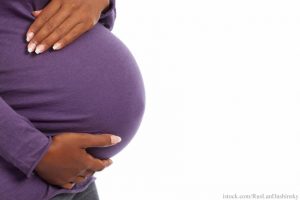Listeria is one of the most deadly foodborne pathogens and it poses a special risk during pregnancy. Among pregnant women, listeriosis can cause miscarriage, stillbirth, premature birth, birth defects or other serious health problems for newborns, even if the expectant mother shows no signs of illness.
 And, because the immune system is weakened during pregnancy, the odds of a pregnant women contracting listeriosis are 10 time higher than the general population. For pregnant women who are Hispanic, the risk is 24 times higher.
And, because the immune system is weakened during pregnancy, the odds of a pregnant women contracting listeriosis are 10 time higher than the general population. For pregnant women who are Hispanic, the risk is 24 times higher.
More than 90 percent of people who contract listeriosis require hospitalization and about 16 percent of cases are fatal. So, of the 1,600 Americans sickened by Listeria each year, 1,500 will require hospitalization and 260 will die. Most of these cases fall into three groups, pregnant women, seniors and those with weakened immune systems. Symptoms, which can take up to 70 days after exposure to develop, include fever, chills, muscle aches, diarrhea and upset stomach.
To reduce the risk of exposure to Listeria during pregnancy, there are some foods that should be avoided, according to the Centers for Disease Control and Prevention (CDC). They include: raw foods, hot dogs, luncheon meats, or deli meats unless they are reheated until steaming hot; deli salads; soft cheeses such as feta, Brie, and Camembert, blue-veined cheeses, or Mexican-style cheeses such as queso blanco, queso fresco, and Panela, unless they have labels clearly stating they are made from pasteurized milk; pâtés or meat spreads from the deli or refrigreated section of the grocery store, and smoked seafood unless it is an ingredient in a cooked dish. Raw milk and other unpasteurized beverages should also be avoided.




